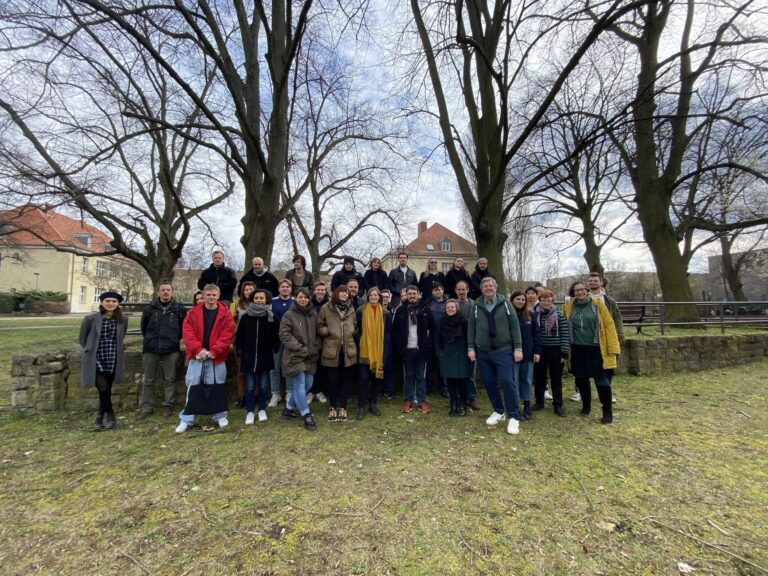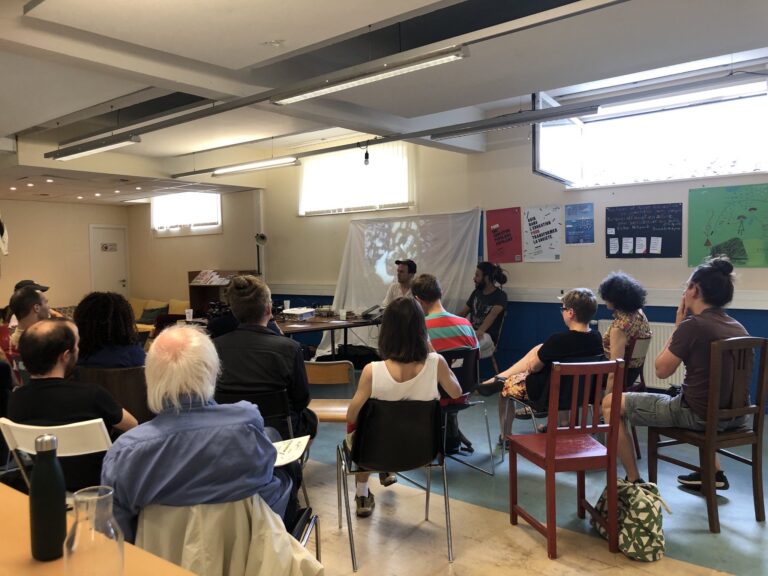ECHO Network: The use of internet for the peace movement | Zagreb, Croatia
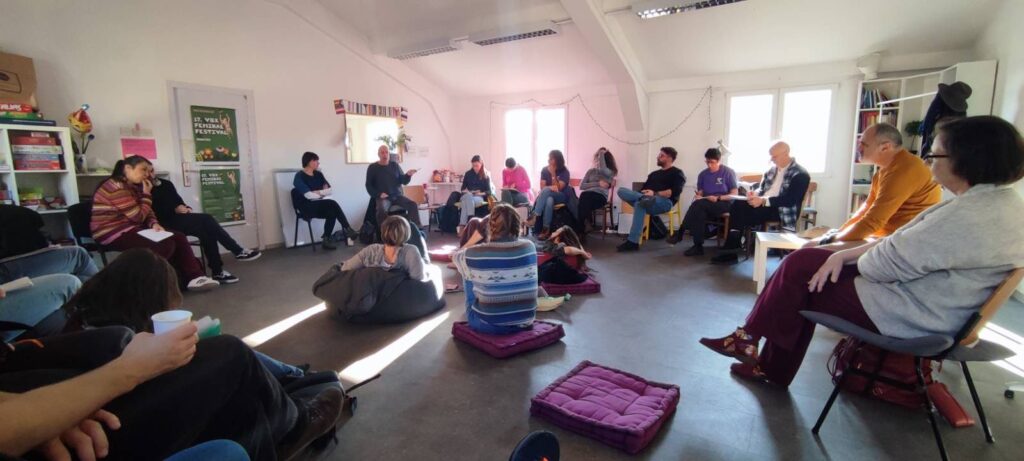
The final Study Visit of the ECHO Network project took place in Zagreb, Croatia. From 4 to 8 December, participants took part in activities organised by the Centre for Peace Studies (CPS) and explored the topics of digital spaces in the framework of anti-war movement.
The Centre for Peace Studies was founded during the Yugoslav Wars by activists of the Volunteer Project Pakrac (VPP), which was led by anti-war campaigners. As part of the project, training in non-violent communications was organised and therefore, the knowledge and skills that were acquired through peace building activities create the basis of the work of CPS.
Deriving from the theory of positive peace, which aims to build peaceful and non-violent societies (as opposed to negative peace, which is the absence of violence), CPS’ activities revolve around the idea that Peace Studies are transformative and deconstruct injustice, which goes along finding ways to work as individuals and in the community. The training given by CPS creates a safe space for the attendees, whose participation is validated through certificates. In recent years, the course has been offered online as well, which enables more geographical inclusivity. To counter the digital divide, the team offers digital support to enable participation.
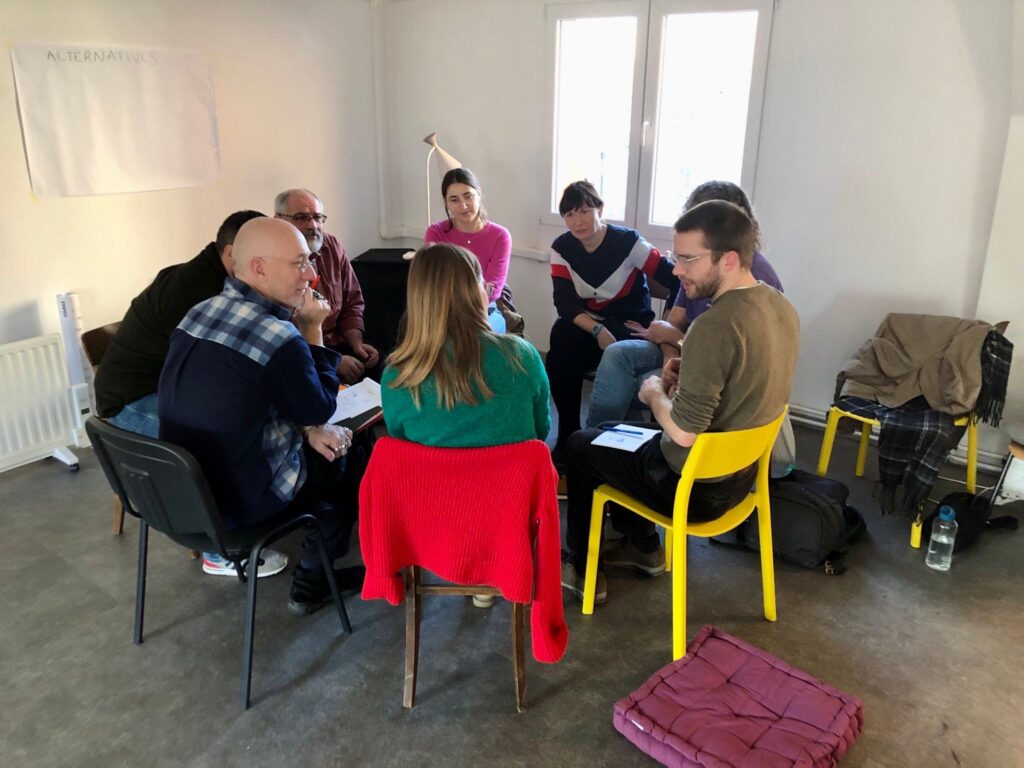
Given the history and principles of the Centre, one of the Study Visit’s activities introduced the participants to the resistance movement in Zagreb. The Cartography of Resistance guided tour explored the anti-fascist network of Zagreb, by strolling around the current physical reality of the buildings while learning about their harsh history, since several hosted concentration camps and torture activities. One point that arose from the discussions was that formal education and general knowledge acquisitions fail to include such historical atrocities as well as the anti-fascist resistance, highlighting revisionism in education regarding the war and recent history.
Since the ECHO Network project explores the topic of digital use, the anti-war movement in Croatia in the 1990’s offers compelling insights. Paul Stubbs, PhD, who came to Croatia in 1993 and experienced the during and post-war society in theory and practice, noted that Pakrac is where the use of computers is democratised. Digital spaces represented the only way to connect when telephone lines were not available due to war, and enabled communication among the peace activists. The activists were building anti-war campaigns, and the internet was their only available space for strategising and planning. Despite the multitude of valid concerns the internet poses nowadays, it is thought-provoking to explore its importance during war time.
Indeed, the NGOs scene in Croatia is abundant, and the partnership among them is strong. During the Study Visit, CROSOL – Croatian Platform for International Citizen Solidarity presented their work in international development and cooperation, which includes topics such as Global Citizenship Education. The Human Rights House Zagreb presented their online tool for combatting hate speech, through which people can report online instances, and receive legal support from the Human Rights House team, which could eventually report the situation to the Ombudsman or police. The third organization, Documenta – Centre for Dealing with the Past, works on understanding the past to prevent future conflicts through enhancing cultural memory, more precisely by creating a data base consisting of war narratives, people (such as prisoners, civilians, soldiers), life events (births and deaths) etc.
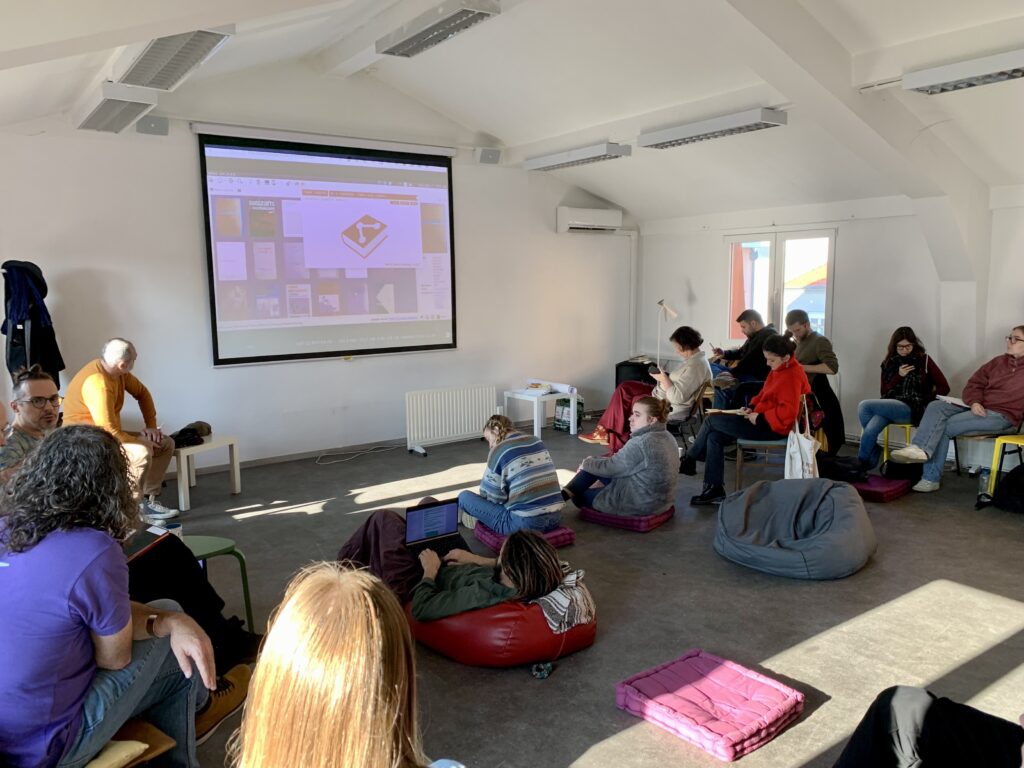
The Multimedia Institute – MaMa was also founded in the wake of the war and is built on the basis that the practices of sharing represent mass politics. This digital space is the host of media archive and catalogue of all kinds of cultural, political and historical resources, and abide to the concept of “politics of care”, aiming for knowledge production.
In the last day, the participants of the ECHO Network Study Visit discussed the implications of technological development and internet surveillance for controlling purposes by companies and governments. The discussion was fueled by a presentation on the use of AI in migration management, which deconstructed the concepts of human security and national security as not being synonyms, and insightfully offered information on surveillance practices for migration that aim at security but in fact are harmful and damaging to the society at large, but in particular people from marginalised communities.
The final Study Visit of the project might have taken place, but the learning outcomes continue to flourish – keep an eye open for what’s coming in 2024!




